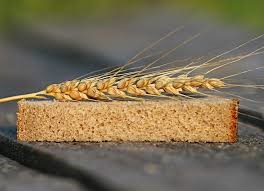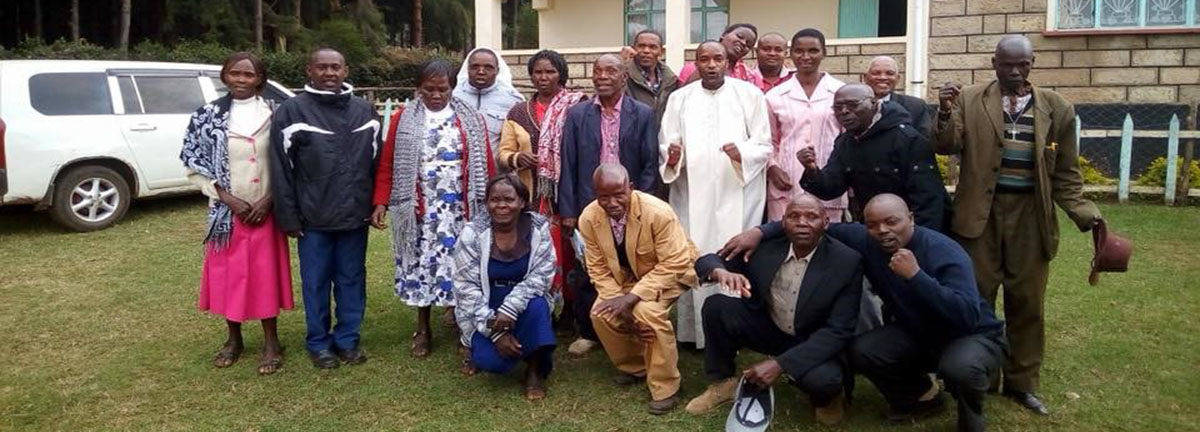
Homily on the 19th Sunday in O.T Year B, 12/08/2018
Lord, make us worthy to inherit what you have promised
And through the Eucharist that we receive, please confirm us
In the light of your truth, Amen.
I like and enjoy eating food, especially fish, pasta, nyama choma and Ugali (In Kenya, meaning roasted meat and corn meal) and many other types of food. I like travelling and sometimes when I travel I stop at some point to eat something especially if the journey is long. Two years ago when we travelled with friends to Maasai Mara National park we reserved some bread in our small safari bags to eat while in the park. All this is simply to live and nourish life.
Last Sunday we reflected on Eucharist the food of truth. Today John the evangelist continues the same discourse on Eucharist on the perspective of Eucharist as bread/food of life. This is our continuous catechesis on Eucharist that we partake in every mass, and adore in the Eucharistic adoration and processions. All these Eucharistic activities we engage into make our catholic life and faith and nourish it.
There is huge connection between food and life. Without food we can’t live.
 Eucharist is bread/food of life; a spiritual food that nourishes our soul and our faith on our spiritual journey to find our ultimate vocation of a glorious future/eternal life that St Thomas of Aquinas reminded us last Sunday with these words:
Eucharist is bread/food of life; a spiritual food that nourishes our soul and our faith on our spiritual journey to find our ultimate vocation of a glorious future/eternal life that St Thomas of Aquinas reminded us last Sunday with these words:
“…Christ beckons us forth to our ultimate vocation, living with him in the glory to come” (Summa, III, 73).
The Christian journey to fulfillment of this vocation is not like a journey from New Orleans to New York City, not like a journey to Nairobi where you stop at Mwea Nice City for some food to continue with your journey, or a journey from one continent to the other where you will get snacks on board or during layovers, Is not like any other journey you make and at some place you will stop to eat some food for the energy to continue with the journey, but a Christian journey is a spiritual journey nourished by spiritual food, the bread of life Jesus Christ himself truly present with his humanity (son of Mary as they see him and this makes it difficult for them to comprehend when he says he is the bread/food of life) and divinity (One who came down from heaven, and not like manna that came down and people collected, ate but died but he came down from heaven as the bread of life and whoever eats this spiritual food will never die). THIS IS THE TRUTH ABOUT EUCHARIST AS FOOD OF LIFE; and the huge connection of truth and Life themes on the Eucharist.
Elijah was given food by an Angel to gain energy for his journey to meet the Lord; Jesus feeds us in the Eucharist to gain energy on our spiritual journey to our glorious future, our meeting with the Lord. Eucharist is our “reservation” for heaven and Jesus leads us on our journey towards eternal life.
What then about those who have lost interest in this food/ bread of life? What about the divorced and remarried? Those who have excommunicated themselves from the church? Those living in mortal sin and no longer receive the sacrament of reconciliation? What action can they take? Kneel before him if you can but unworthy reception of his body and blood is not allowed, it pierces the heart of the Lord of life. Canon 916 states: “In mortal sin clergy aren’t allowed to celebrate mass and lay people aren’t allowed to receive the Eucharist unless when there is a grave reason and there is no opportunity to confess your mortal sin before mass…”
Canon 919 #1 continuously reminds us of one hour fast before receiving the Eucharist except water or medicine.
The Lord took an action of coming down from heaven to give us life and too we too can take an action of responding to him by receiving this food/bread of life worthily to have life.
Every commitment in life, to holiness, every pastoral planning must draw its life and energy from the Eucharistic mystery. Not only the canon law that guides us to worthy reception of Eucharist but also the second reading gives us an impression of a Eucharistic person and his/her life.
Blessed Sunday

